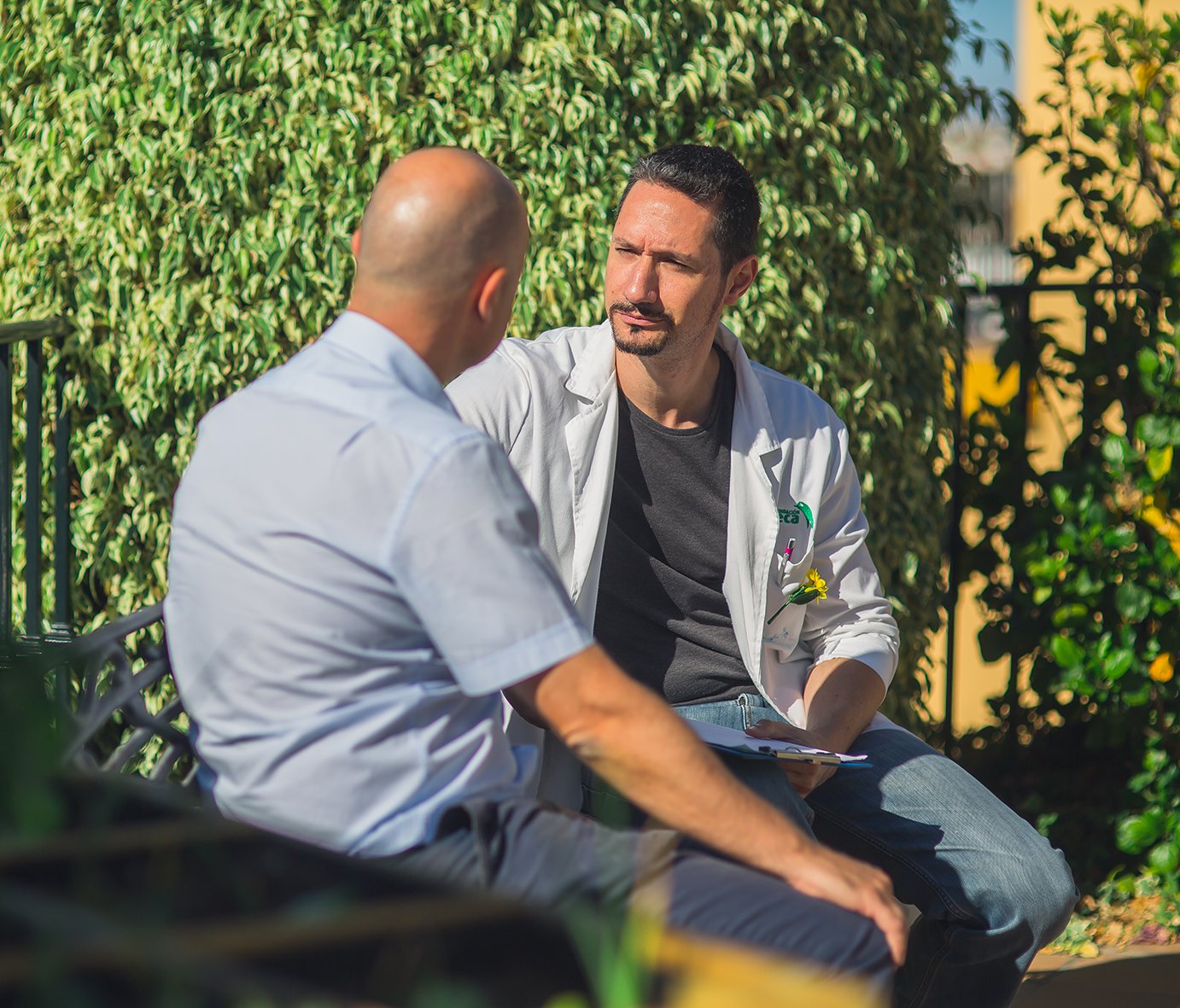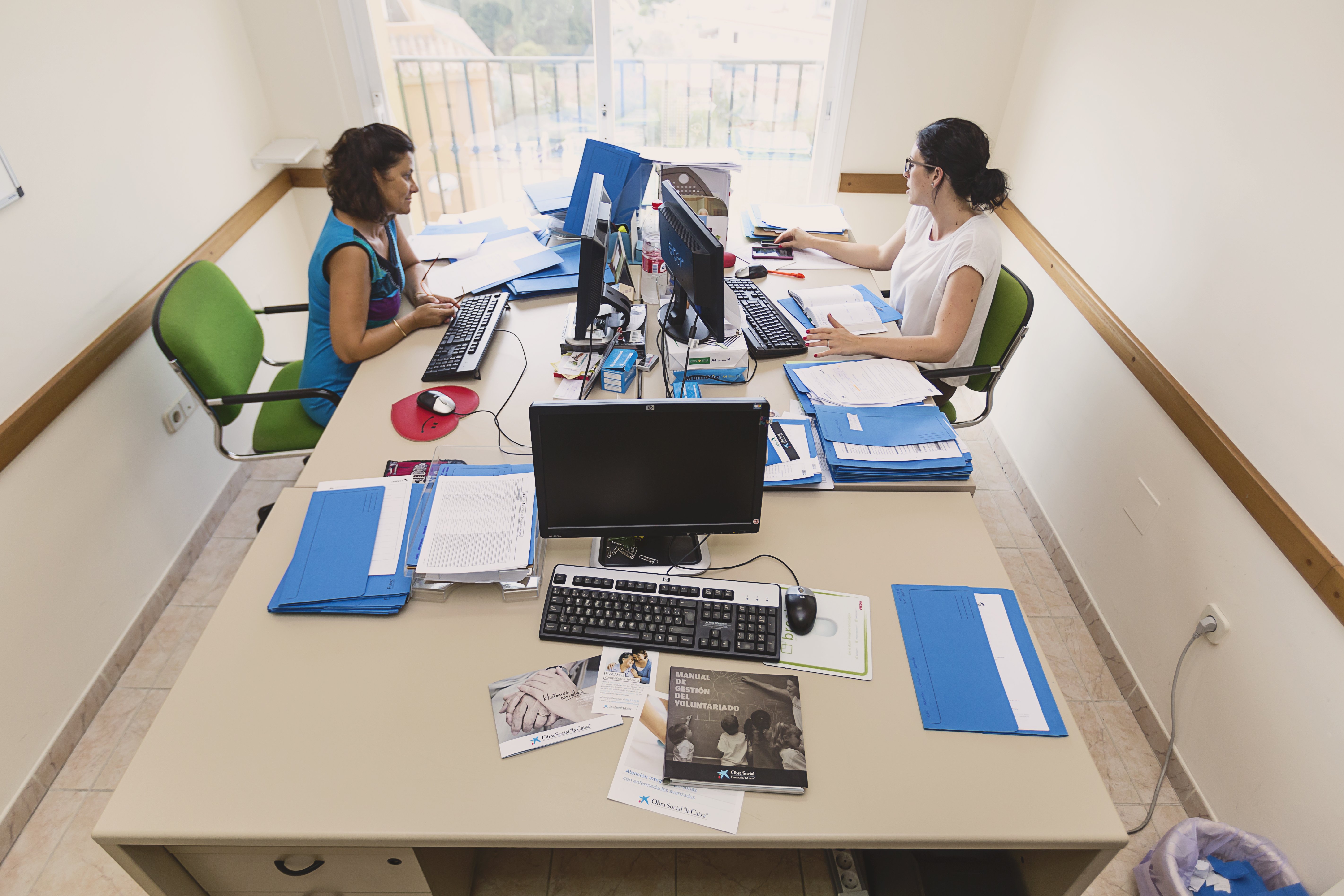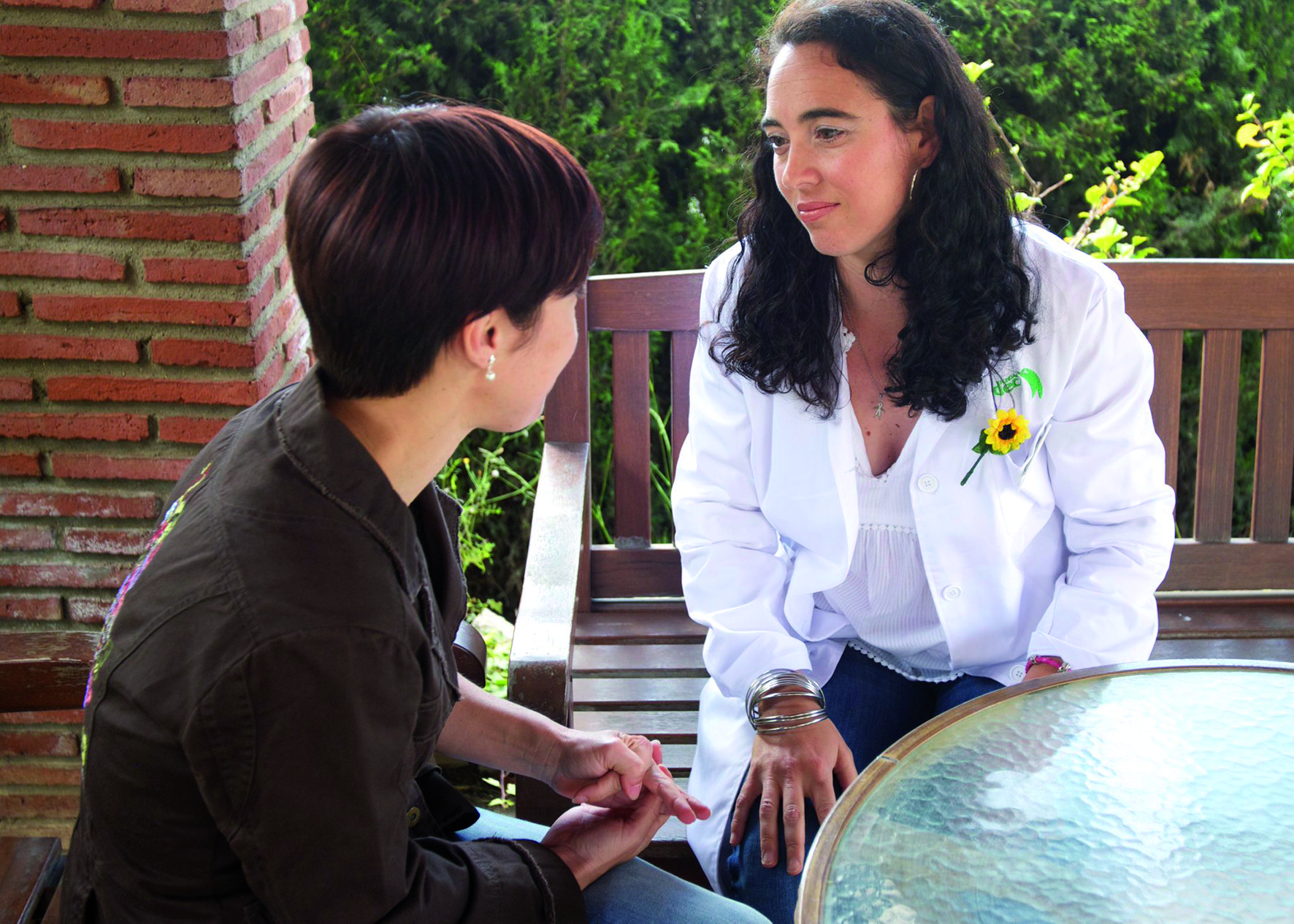30 years adding life to the days. Psychological and Social Care
One of the key aspects of palliative care is to address the psycho-social needs of the person suffering from an illness such as cancer or other advanced diseases.
For this reason we have psychologists and social workers who support the other care teams and help patients, and those around them, to control negative reactions and find other ways to accept the situation and help them to control the situation in which they find themselves at the end of their lives.
We also provide bereavement support.
Our teams form part of the "la Caixa" Foundation's Programme of Comprehensive Care for People with Advanced Illnesses and their Families.


The psychologist assesses the emotional needs of the people referred to her, incorporating her expertise into the individual care plan. She is able to treat patients and families in their own homes, in the Out-patient Clinic, the Day Centre or in the In-patient Unit. Some of her interventions are on a one-to-one basis while others are in groups with the patients and their families. Bereavement follow-ups take place in those who have a high risk of developing a traumatic reaction to the death of a loved one. The volunteers also have the psychologist available if they find their work difficult.
The social worker attends to family, work and various social problems of the patients and families finding solutions to these kinds of problems that arise during the path of a terminal disease. The social worker is able to contact other health institutions, community social services and specialist NGOs. Similarly to the psychologist the social worker can attend to patients and families in their own homes, in the Out-patient Clinic, the Day Centre or in the In-patient Unit.
Bereavement support is provided because families need someone to talk to when someone close has died. Under normal circumstances, support of this nature will come from family and/or friends, but sometimes the option of talking to someone who is not personally involved can help, especially if that person has professional training. Bereavement support is given as families need someone to talk to when someone close has died. Much of this support may come from friends and family. But sometimes it can help to talk to someone who is independent and professionally trained to give support.




